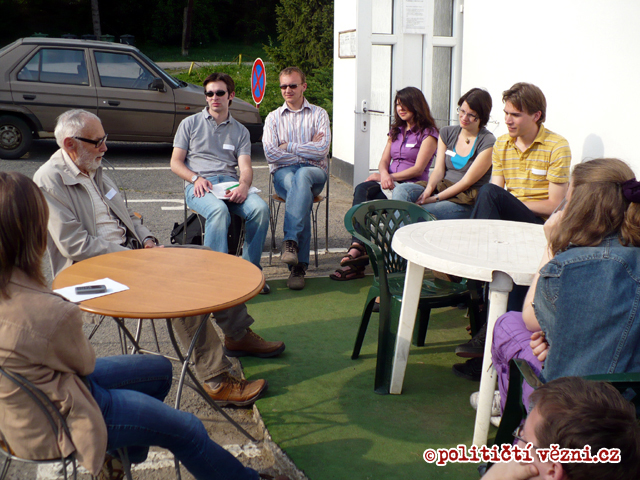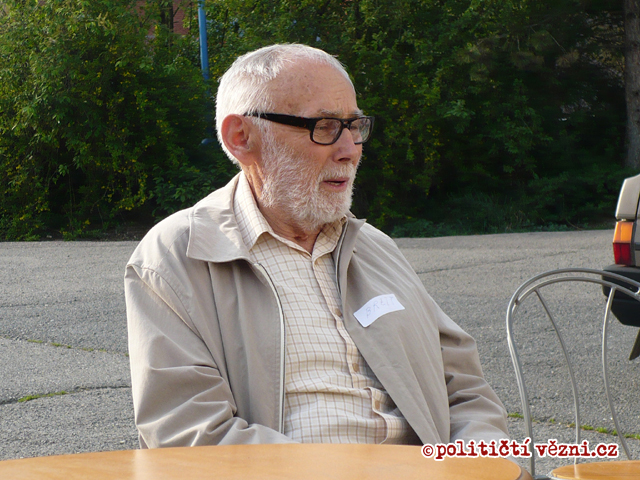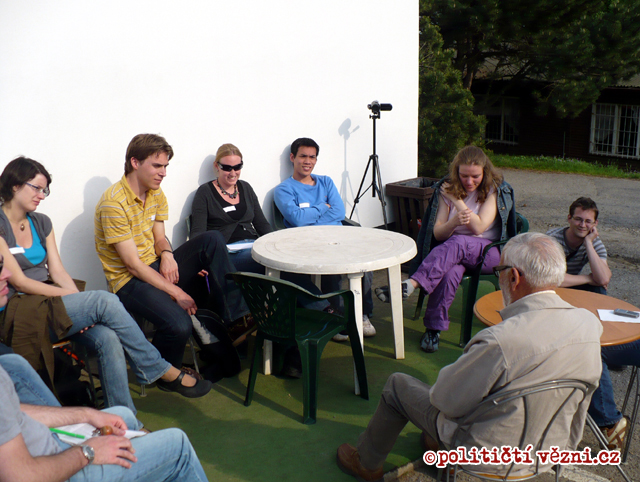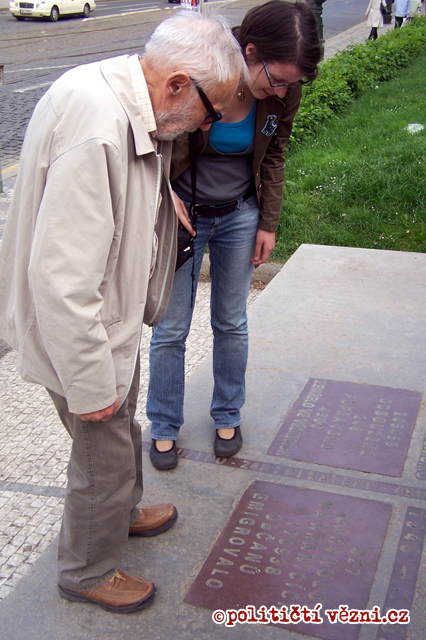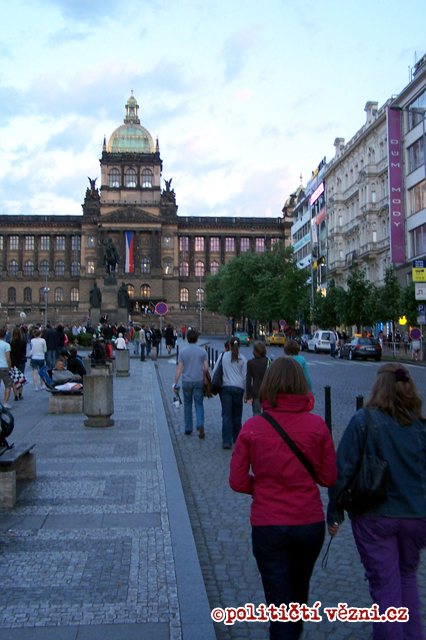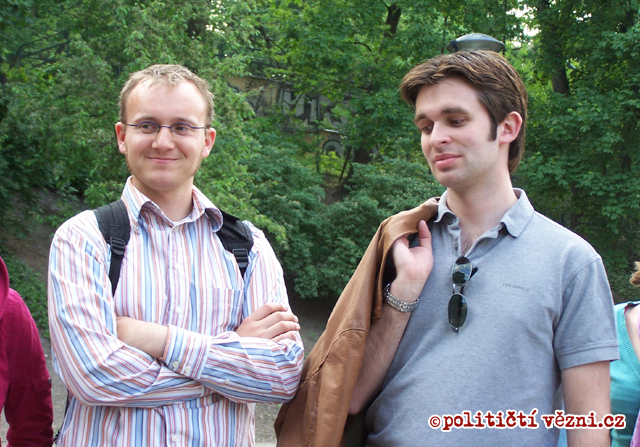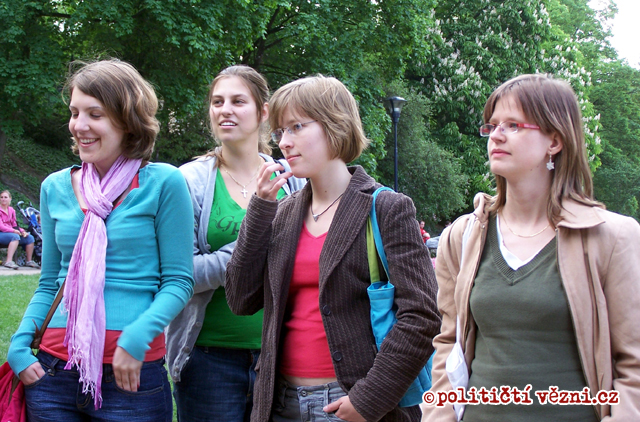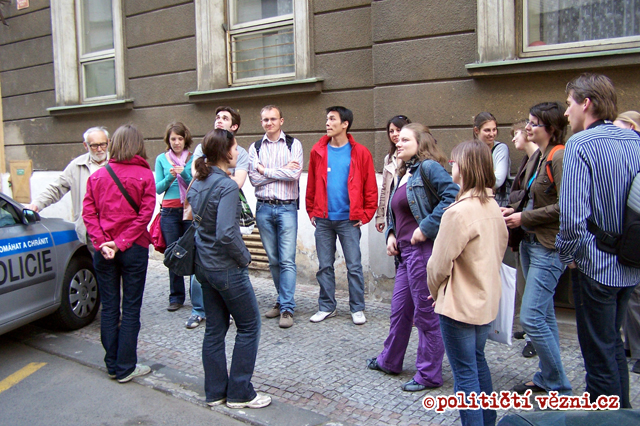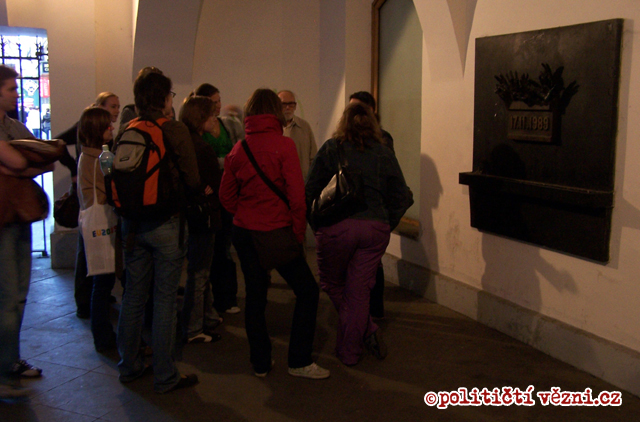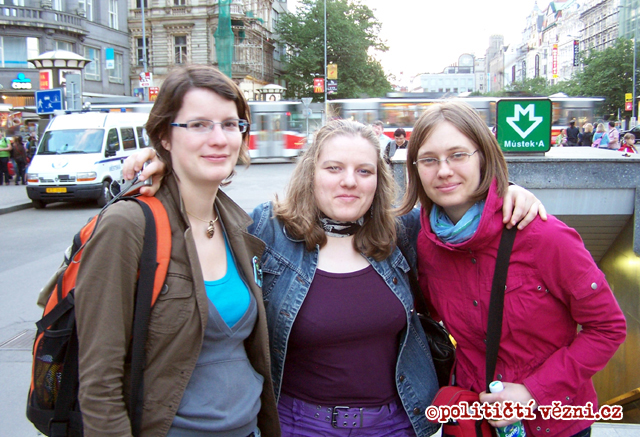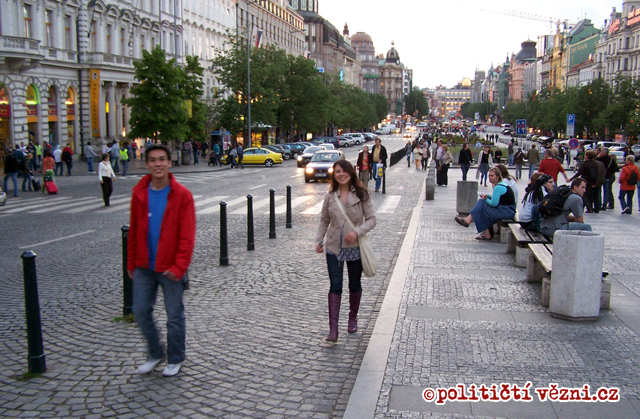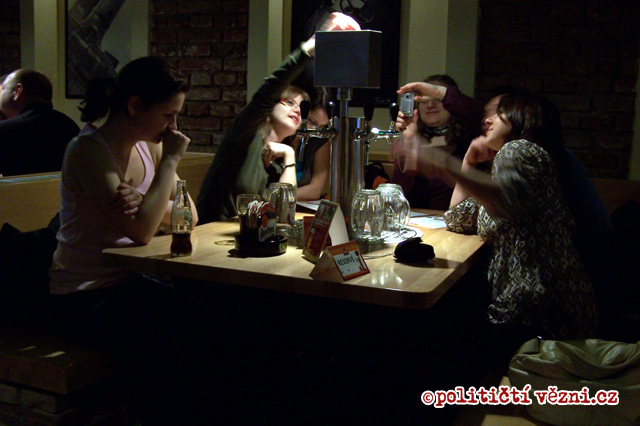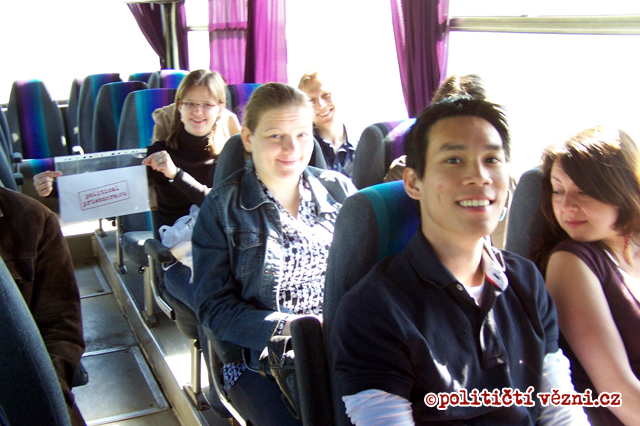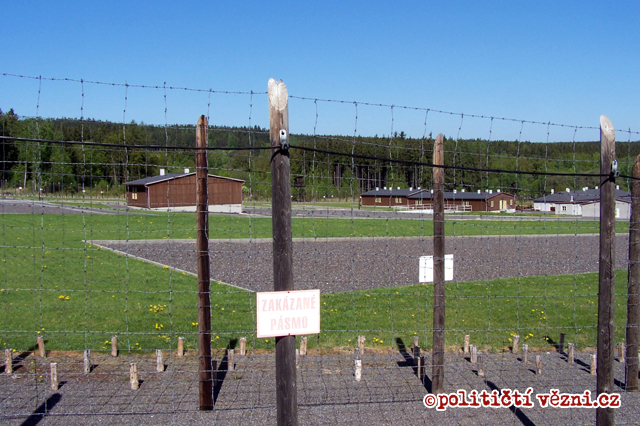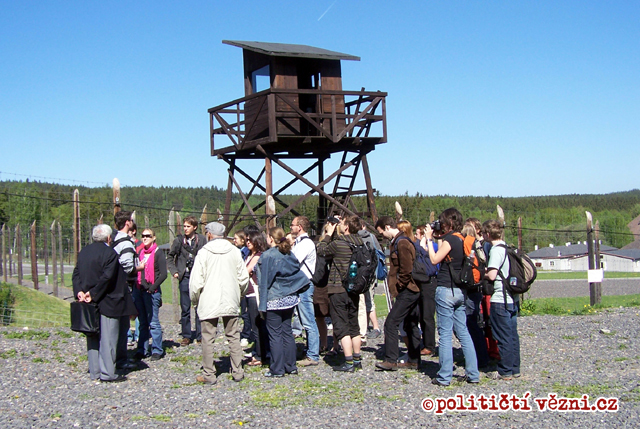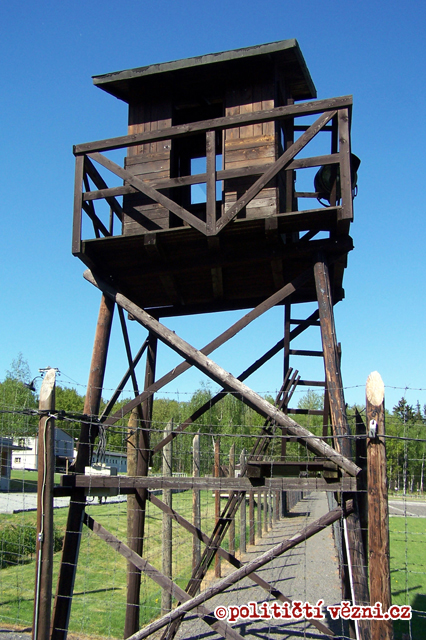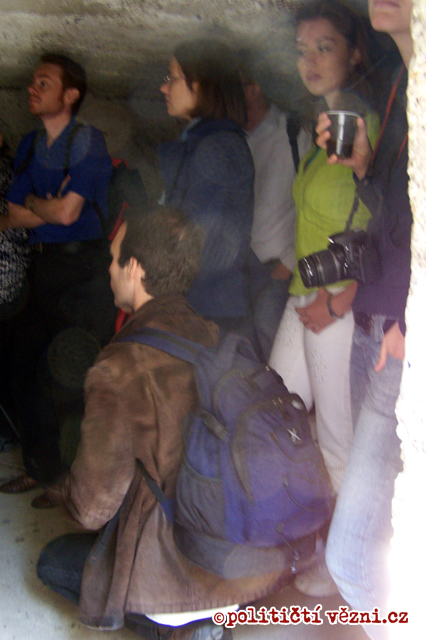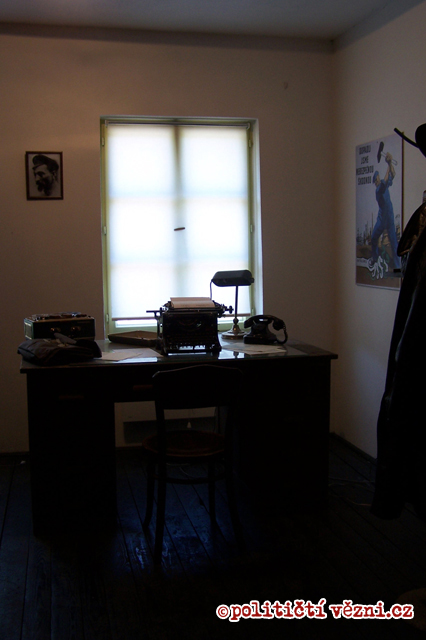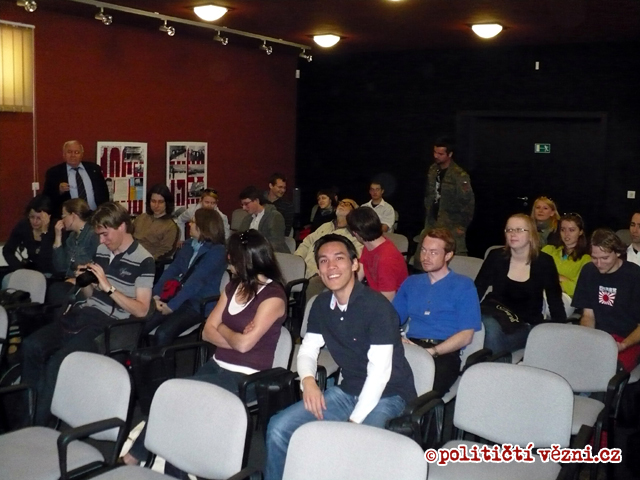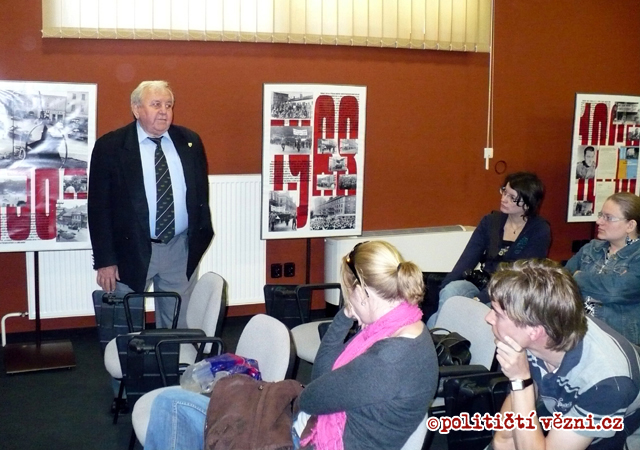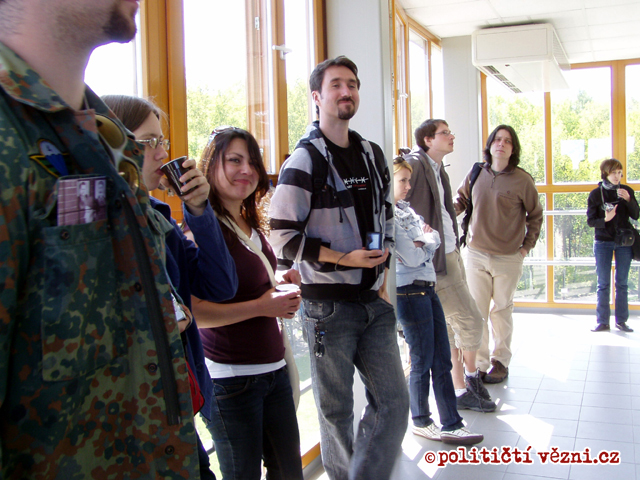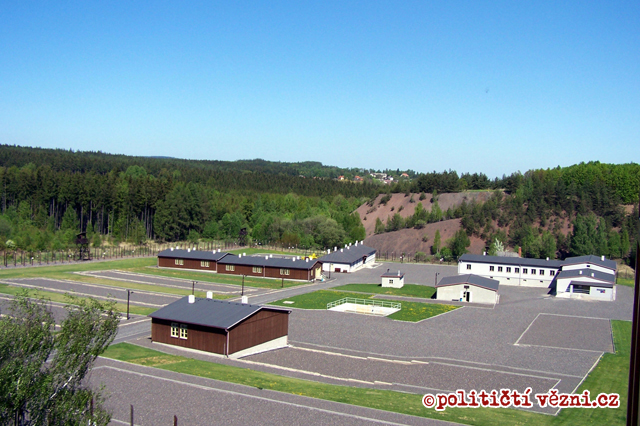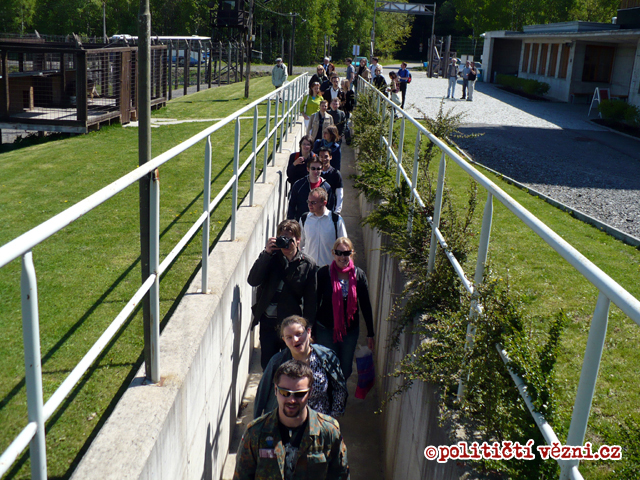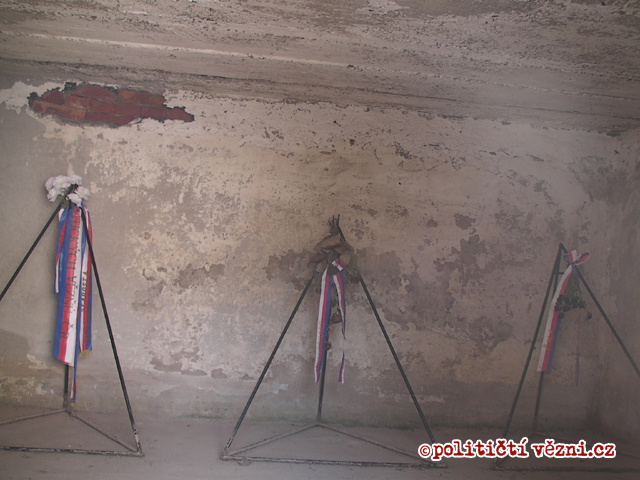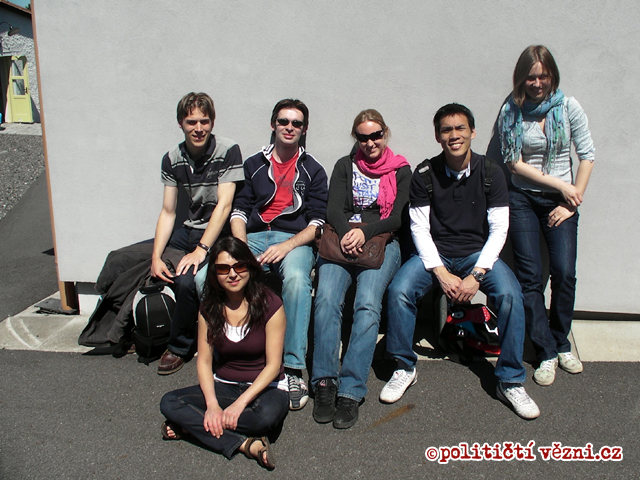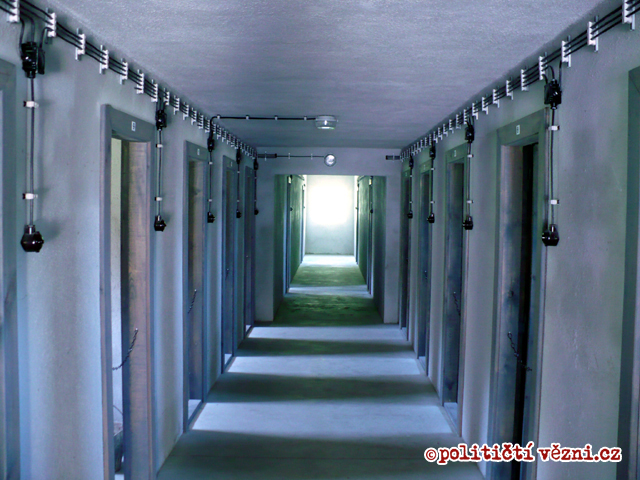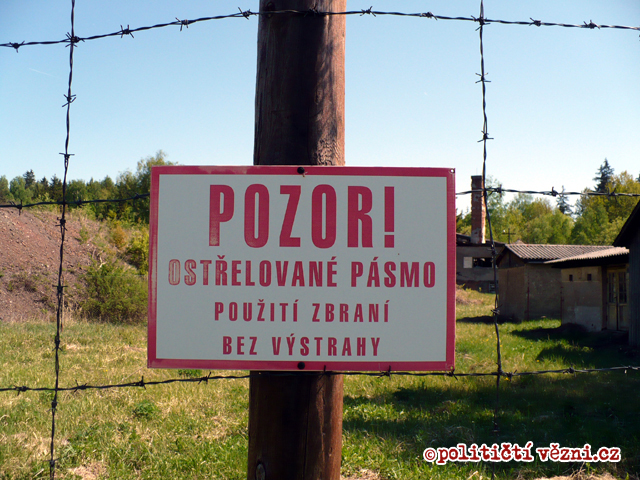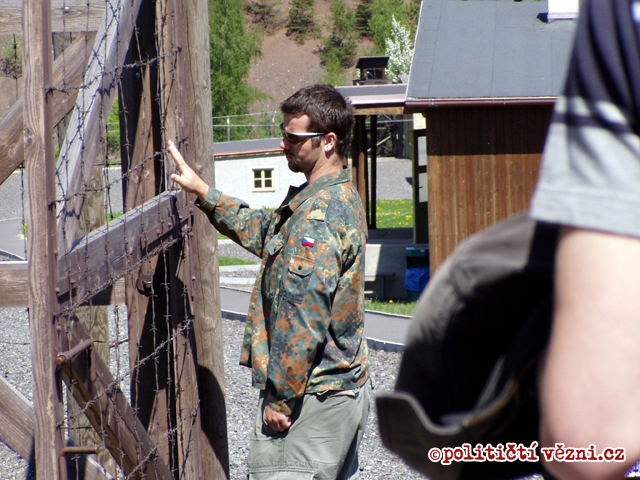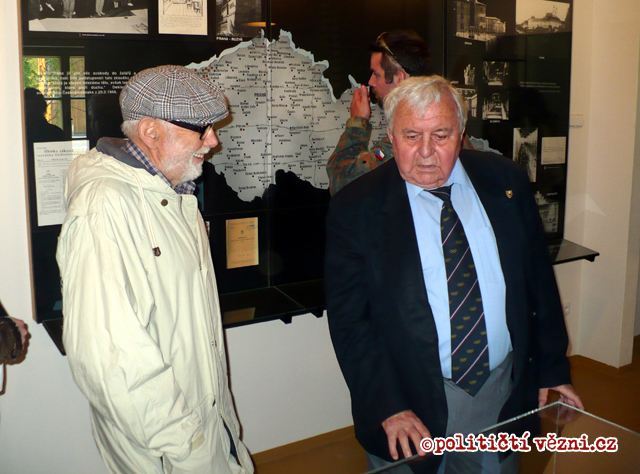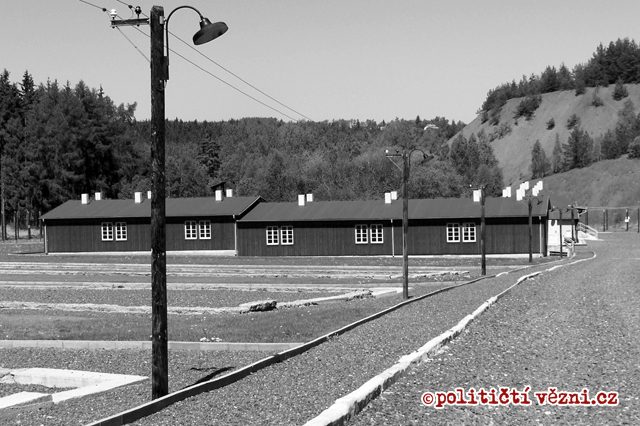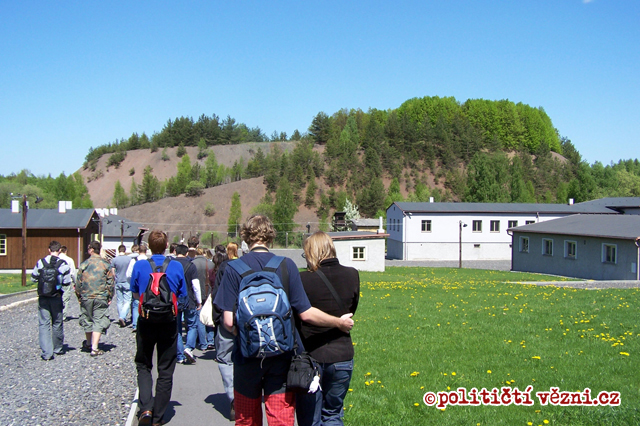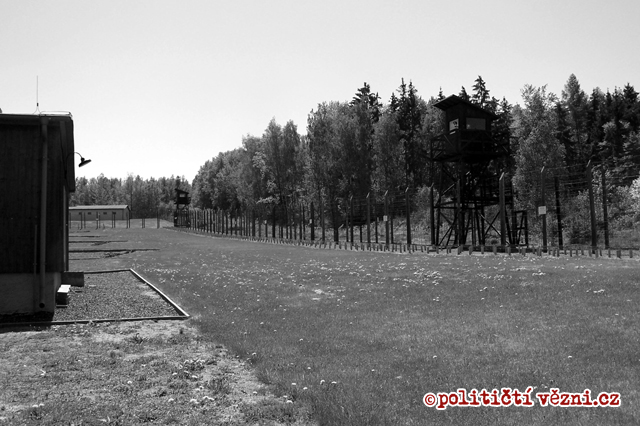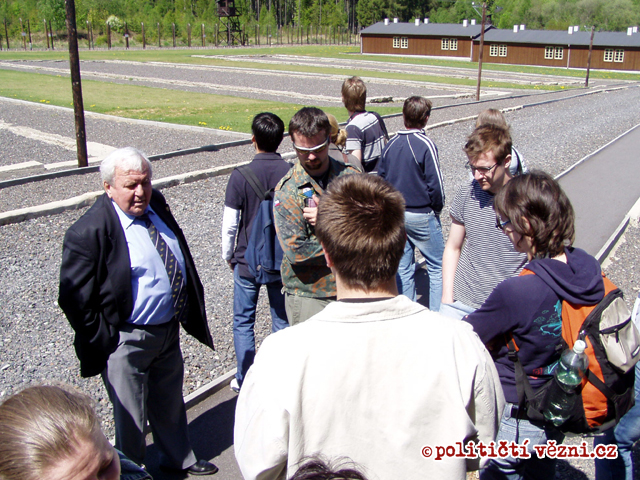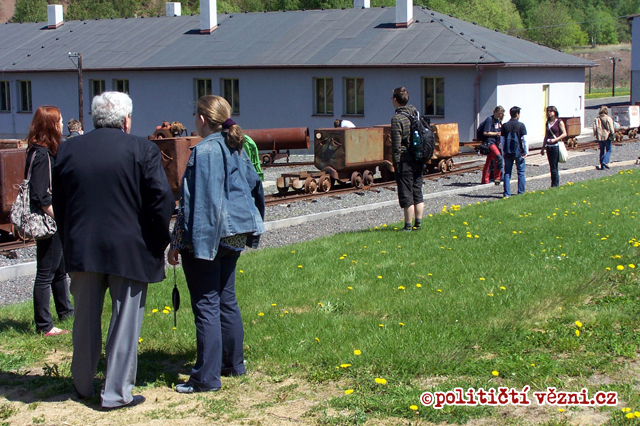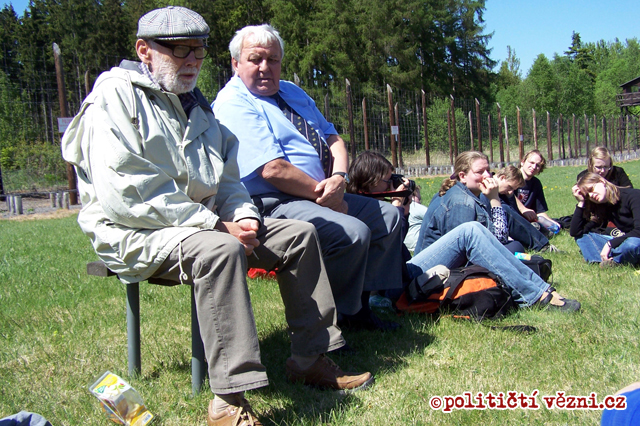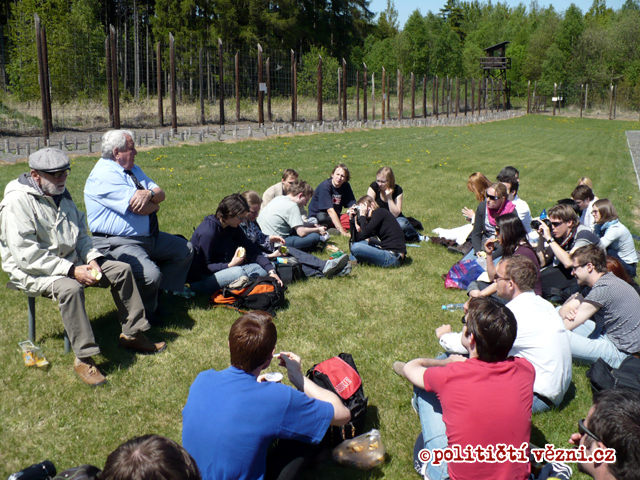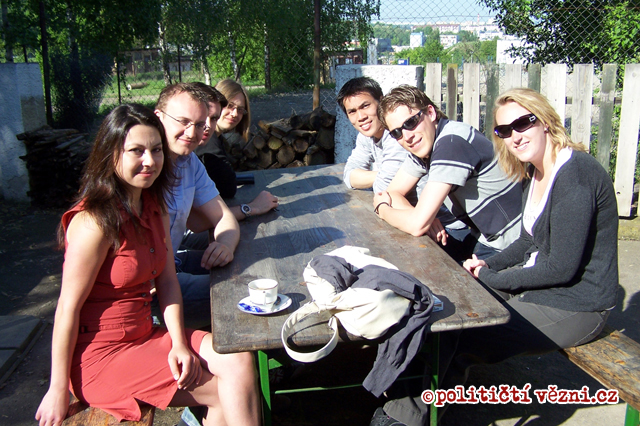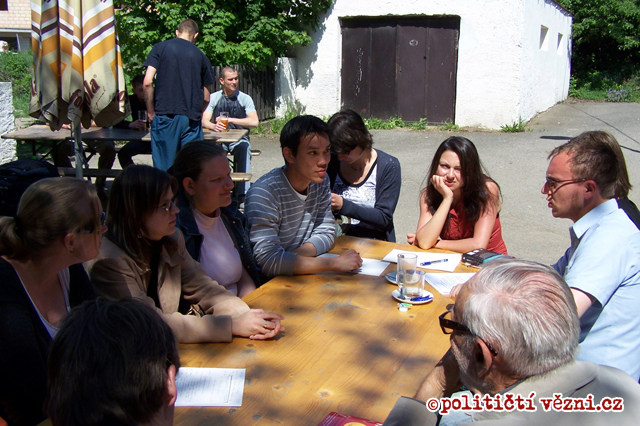International workshop „Life in the Stalinist Labor Camps“ took place in Prague
The volunteer initiative politicalprisoners.eu organized another youth event dedicated to commemoration of victims of Stalinism. European youth representatives joined two former political prisoners, Břetislav Jeník and Augustin Bubník, and visited the Vojna memorial, former forced labor camp in central Bohemia. Read the results of this workshop:
Workshop investigating the meaning of Victims of Stalinism
Round 1
Group 1: Individuality
Individuality is a broad meaning. It party depends to the circumstances and adapting to the environment one finds itself in. The meaning of individualism differs. In some circumstances there is no possibility for physical individuality, but nevertheless you can keep a mental individuality in the mind. Besides, by building tiny social networks you are not isolated or brought down and you have some (mental) room to move.
Example: wine making in prison by inmates.
Group 2: European society
EU wants to create a European Citizen, European identity etc. Common historical knowledge is therefore needed.
How a European society does help European integration? EU is split into two blocks: West vs. East.
How does a project about Czechoslovak prisoners help European integration?
- It happens also in other European countries
- The case study of the former Czechoslovak can be used as an example.
- To understand other countries you need to understand their history.
Group 3: Activism
The last examples of political prisoners in the Netherlands are not easy to identify.
A political prisoner is being jailed for a political crime, but it is not easy to identify a political crime.
Example: Milosevic is a criminal for some, but a political prisoner for others.
Round 2
Group 1: Individuality
It is possible to be an individual while being jailed in camps. It is even easier to express yourself in a camp than outside. Currently some people are not used to freedom of speech, although newer generations actually are. In camps women try to preserve their feminine identity, while the regime tried to suppress it. If they were women, they were at least someone. And they tried for example by washing themselves thoroughly, but it was difficult when their hair got cut off. Priest tried the same thing by praying in their own minds, as it was forbidden in public.
You have to keep your own identity as an individual!
Group 2: Role of EU
The funding of this project is primarily to justify their existence. But it may be too small, as it is mainly focused on the individual.
Western countries have to know about the history of Eastern countries. People in Western countries are seeing Eastern countries as a threat, for example jobs, money. They are also afraid of the European flag and anthem. They feel that their opinion is not heard by the government. They feel that tax money paid to the EU is a waste, but if the EU wouldn't have given money to this project it wouldn't have taken place. These types of projects are important, because they give a glimpse of how it was. But for many people it is difficult to understand the reason for the existence of the EU. They don't see the benefits.
Group 3: Activism
It was difficult how to define political crimes. Last time of political imprisonment in NL was post-war imprisonment of Nazi collaborators. A political prisoner is someone who didn't commit a crime, but how to you fight if you have a different opinion than ruling government/system. You first have to define what is a political prisoner before you can take action or maybe not, start at the ones you are sure of. Try to take steps to prevent political imprisonment.
Round 3
Although prison tries to mentally and physically destroy the person, prisoners had the possibility to find the space in mind and to feel free. Sometimes they had chance to play football or to make a wine. It depended in which time, in which camp it was possible, of course.
Communist regime influences today life, minds and habits of nowadays generation. Parents educate and have big influence on their children.
What EU expect us what to do with knowledge of this event? Should we spread them in our countries? And what to do, when EU won't support project like this? Should we find an alternative? We should to arrange these activities not only that Czech Republic is in EU.
Is European awareness just constructed? If so, shall we stop it?
Evaluation event (international ws)
- Fruitful debate all three days. Exchanging many points of views was really interesting. Location was perfect. Information provided before the event was really good. Organization was really tip top.
- Discussion with life eye-witnesses brought new opinions and views. Eye-witnesses vs. Literature were quite different. Official verse of history is completely different from reality
- Didn't expect communism to be so much like Nazism. The oppression to be that large was unexpected.
- History is not black and white ("Somebody can cooperate with communism, but be still in opposite")
- CZ participants were isolating themselves and there was no introduction. There were two Gross, no contribution from CZ group in WS and discussions.
- Big part of information
- More separate emails.
- Program on Saturday was too long for some, not for others.
Evaluation WS Sam
-
In comparison with February-conference its interesent to see how its being down. Different compared in university (CZ). They way of leading this WS is very interesting.
- Interesting who WS was set up by conclusion making in between. Taking different point of views from the group and elaborate on that.
- Specific, hands=on approach.

